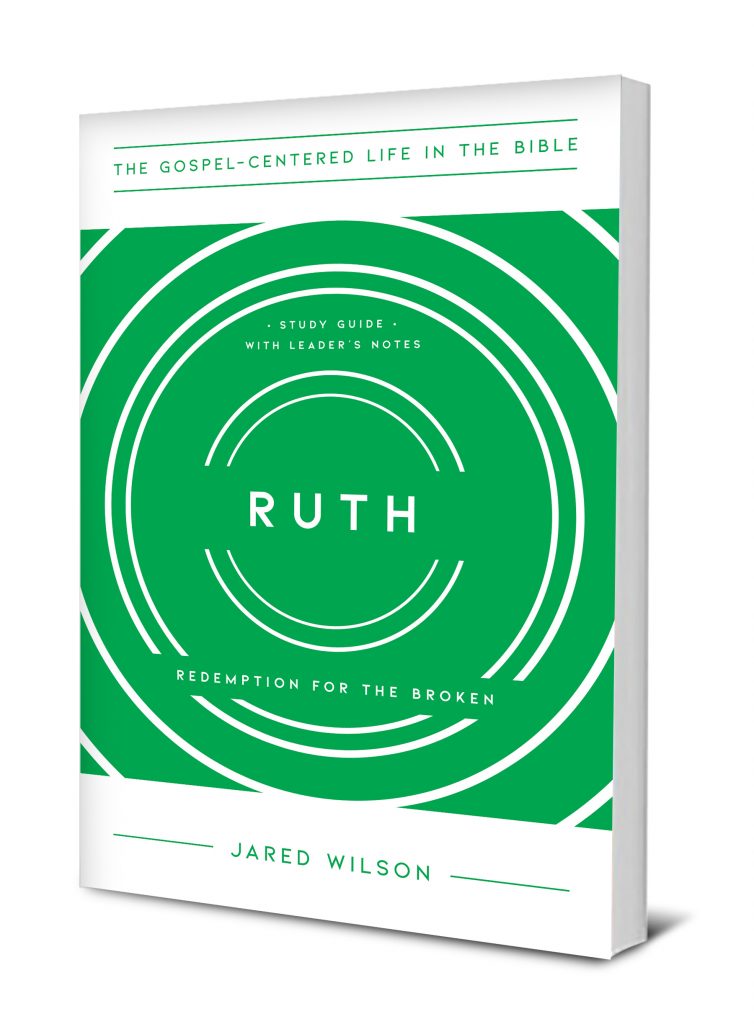Despite its relative brevity and historical narrative structure, the biblical book of Ruth contains an abundance of gracious treasure gleaming under the radiance of the glorious Christ. While some of these gems may be hard to find at first glance, they reward the diligent reader interested in the book not just for its poetic beauty and humble romance, but for what it ultimately tells us about the Messiah to come.
Here are just four aspects of the good news of Jesus we see foreshadowed or implicitly referenced in the story of Ruth.
1. We have communion with God through union with Christ.
In Ruth 1, we discover the circumstances of Naomi’s return to Bethlehem. She has lost her husband and her sons. All she has left are her two daughters-in-law and a heart full of bitter grief. She urges her daughters-in-law to return to their homeland. Things are bleak. One agrees and deserts her. Ruth refuses to leave, committing to stay with Naomi no matter what. This is what she says:
For where you go I will go, and where you lodge I will lodge. Your people shall be my people, and your God my God. Where you die I will die, and there will I be buried. May the Lord do so to me and more also if anything but death parts me from you. (1:16b-17 ESV)
Despite Naomi’s sorry state and rough outlook, Ruth promises to stick by her, and in fact, to marry their fortunes together. This is a beautiful picture of what Christ does for us. Our futures aren’t always certain. Our hearts aren’t always happy. Our circumstances aren’t always peaceful. Yet the Lord never leaves us. He commits to us forever. His Father becomes our Father. Where he has died, we died (Romans 6:8; Galatians 2:20). We were buried with him (Romans 6:4; Colossians 2:12).
By faith, we are united to Christ, who will never leave us or forsake us. Through our union with him, we are able to enjoy communion with God. Not even death can part us.
2. Enemies of God become the family of Jesus.
As Ruth follows her mother-in-law’s instructions about serving in the fields of Boaz, she finds remarkable favor in the master’s eyes. He makes her safety and flourishing his chief concern. This is astonishing, not least of all to Ruth herself, because she is from Moab. Jews and Moabites weren’t supposed to mix. In fact, Naomi’s sons had already flirted with theological and cultural danger in even taking Moabite wives in the first place.
So here is this Moabite woman dragged into a foreign land by her Jewish mother-in-law and now at the mercy of a dominant culture that by all apparent rights should be treating her like an outcast. The opposite takes place, however. In Ruth 2:10, we read, “Then she fell on her face, bowing to the ground, and said to him, ‘Why have I found favor in your eyes, that you should take notice of me since I am a foreigner?’”
This is strikingly similar to our position before God. We have no right to a relationship with him. In fact, by nature, we are rebels against him, enemies to his holy law and deserving of his wrath. We are spiritual foreigners to the kingdom and, because of his perfect holiness, are rightfully owed exile from him. And then Christ comes to smile on us. To live the sinless life we should’ve lived but wouldn’t. To die the sacrificial death we ought to have but couldn’t. With his blood, he appeases the wrath of God and ushers foreigners into the kingdom of God. The gospel makes strangers into friends, but more than that, it makes enemies into brothers and sisters.
We now rightly ought to fall in gratitude before our Redeemer, who has looked with favor upon us only out of his own love for us and glory for himself and worship him.
3. The gospel does what the law cannot.
Boaz wants to redeem Ruth, but there’s a problem. There is a kinsman-redeemer who is technically first in line (Ruth 3:12). Boaz must go and secure this man’s permission, as he has, in a sense, “first dibs” on redeeming Ruth (3:13). This is what the man says when Boaz goes to inquire with him, informing him that to buy the field required means taking Ruth’s hand in marriage: “I cannot redeem it for myself, lest I impair my own inheritance. Take my right of redemption yourself, for I cannot redeem it” (4:6).
This is, in a way, a picture of the law’s inadequacy to redeem sinners. Because the law reflects the perfect holiness of God, it is good. And because it is good, it cannot be tarnished or “bent” to justify sinners. Doing so would “impair the inheritance” of it. In this instance, Boaz is a type of Christ, a foreshadow of the Messiah who comes not to violate the law, but to fulfill it! We see this in the way Boaz sought not to circumvent the rights of the kinsmen first in line, but to go through him. Christ perfectly fulfills the law, then he does what the law cannot do. The law can show us what to do and it can reveal how short we fall of doing it. But the law cannot save us, because we can never measure up to it. Only the grace of God given in the good news of Christ’s person and work can save us.
That’s exactly what happens here. The law is the first kinsmen redeemer. “Can you redeem this sinner?” “I cannot,” he says. He passes the responsibility to the one who can.
4. God redeems the broken.
Sometimes we don’t know what God is doing with our story. We feel lost, hopeless, confused. Sometimes we feel irredeemable, unsalvageable, even pointless. However, God is always doing a million things in our lives that we do not see, and he has promised that every tear will become a shout of joy. He will trade ash for beauty. Where do we see that in Ruth?
At the very end of the story, we read this:
So Boaz took Ruth, and she became his wife. And he went in to her, and the Lord gave her conception, and she bore a son. Then the women said to Naomi, “Blessed be the Lord, who has not left you this day without a redeemer, and may his name be renowned in Israel! He shall be to you a restorer of life and a nourisher of your old age, for your daughter-in-law who loves you, who is more to you than seven sons, has given birth to him.” Then Naomi took the child and laid him on her lap and became his nurse. 17 And the women of the neighborhood gave him a name, saying, “A son has been born to Naomi.” They named him Obed. He was the father of Jesse, the father of David. (Ruth 4:13-17)
The last few verses provide a genealogical recounting of who came before and after Boaz to establish the line of David. And we all know who came from the line of David, don’t we?
Matthew’s genealogy in the first seventeen verses of his Gospel cast the narrative a bit wider to show us how the Messiah Jesus came from the line of David. Matthew even includes, contrary to many cultural conventions of the time, the names of women. There is our lowly, widowed Moabitess Ruth in Matthew 1:5.
Matthew includes other women, as well: Tamar, for instance, and Bathsheba. What do these three women have in common? A dark shadow. Whispers. Judgment. The exploitation of men and the helplessness of being thrown to the winds of uncaring history. Here Matthew shows that even their stories beautifully contribute to the coming of the glorious Christ.
The story of Ruth is a reminder to us that no matter how broken we feel—or how broken we actually are—God is making something beautiful out of our stories. He is crafting in and through us a life that, in the end, will magnify the Lord of the Universe. That’s good news!






